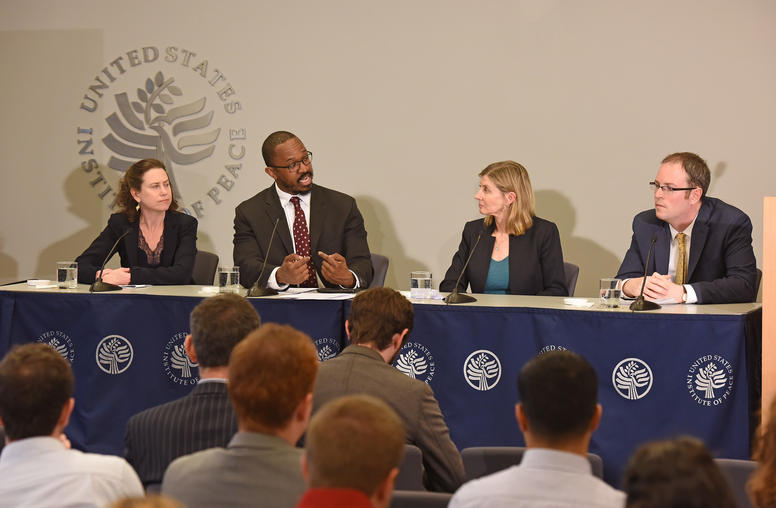
Foreign Policy and Fragile States
Seven years into a brutal civil war in Syria, we are reminded how fragile states can lead to regional instability, cause humanitarian crises and fall prey to extremist organizations, such as ISIS.
As a national, nonpartisan, independent Institute, the U.S. Institute of Peace draws on our exceptional convening power to create opportunities for diverse audiences to exchange knowledge, experiences, and ideas necessary for creative solutions to difficult challenges. We serve as an important, neutral platform for bringing together government and nongovernment, diplomacy, security, and development actors, and participants across political views. The Institute’s events help shape public policy and priorities to advance peaceful solutions to conflict and strengthen international security.

Seven years into a brutal civil war in Syria, we are reminded how fragile states can lead to regional instability, cause humanitarian crises and fall prey to extremist organizations, such as ISIS.
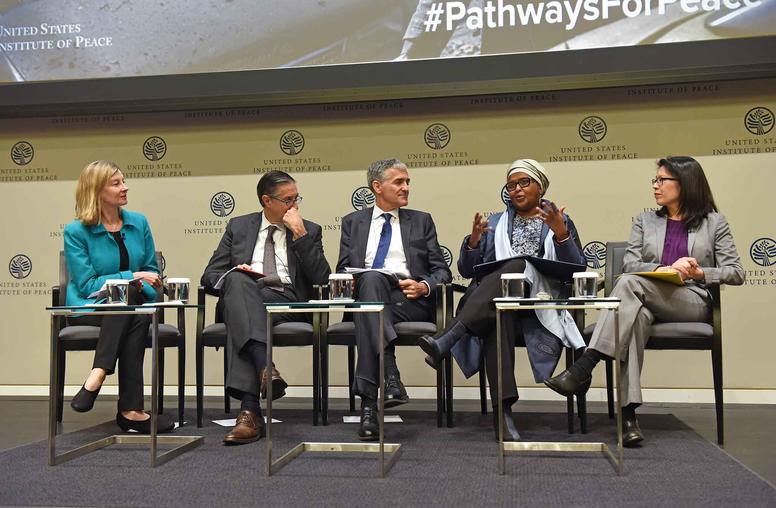
Experts at the U.S. Institute of Peace discussed how the international community can promote better policies and programs to pave the way forward to peace. Now watch or listen to the recorded event.
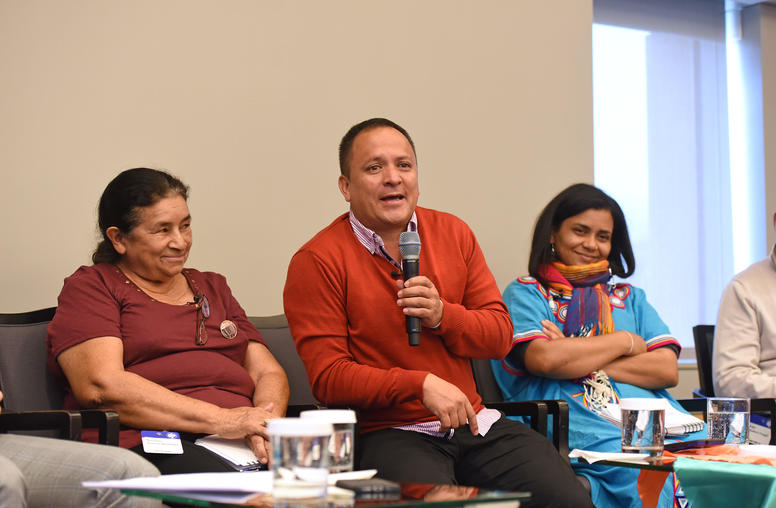
The government’s peace accord with the former FARC rebels presents a historic opportunity to work towards the construction of a democratic Colombia that addresses the wrongs of the past and charts a new course toward equality, justice, and prosperity. At the heart of this process are human rights defenders and civil society organizations, who play a vital role in addressing the underlying economic and social root causes of violence and holding stakeholders accountable to the commitments of the accords.
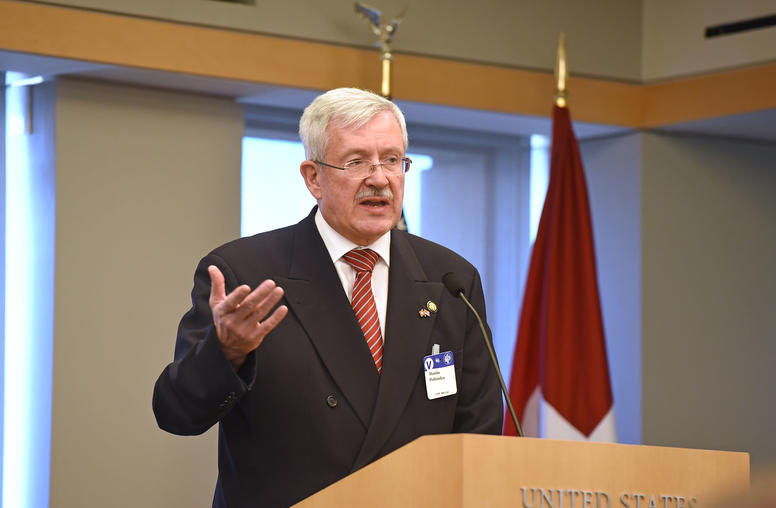
In 2017, a half-million Rohingya fled attacks on their homes in Burma. Eight million face starvation amid Yemen’s war. Atrocities against civilians continue in Syria, South Sudan and elsewhere. What lessons did we learn from the Holocaust – if any? And how can we strengthen norms and institutions to prevent future atrocities more effectively? On January 30, USIP hosted a discussion on the state of atrocity prevention with leading experts.
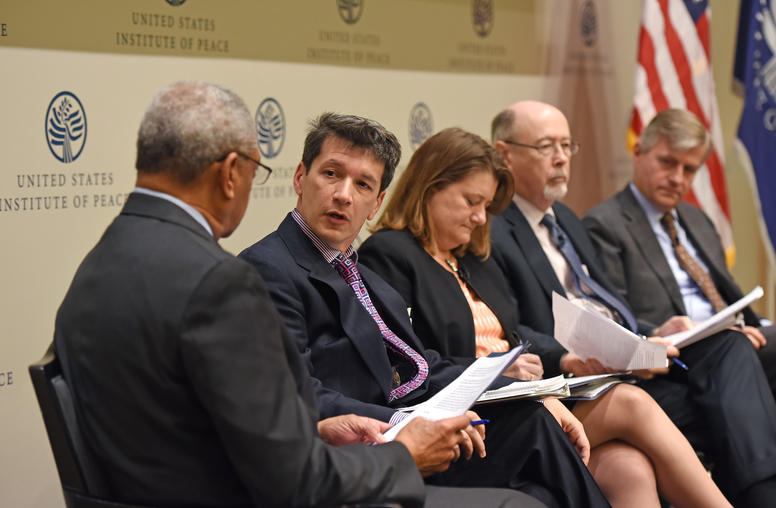
United Nations peacekeeping operations are vital to global stability, with over 100,000 troops and police deployed to 15 missions, serving 125 million people across the world. On Dec. 6, the U.N. undersecretary-general for peacekeeping operations, Jean Pierre Lacroix, and a group of experts discussed what reforms are planned, and what obstacles they face.
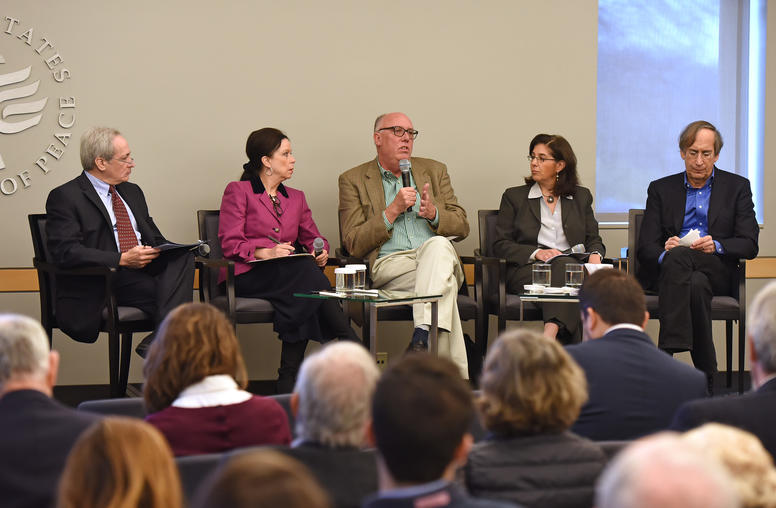
In the past few weeks, the Islamic State (ISIS) “caliphate” has collapsed. Syria’s Assad regime all but formally won the six-year war, a consolidation of Iranian and Russian influence. Saudi Arabia purged parts of its royal family. Lebanon’s prime minister abruptly resigned. Iraq’s Kurds voted for independence, triggering a confrontation with Baghdad. Years of U.S. and international engagement has failed to politically and physically rebuild fractured countries, and the very viability of states like Iraq and Syria has been challenged. Where is the region headed, and what are the U.S. roles amid this tumult? At USIP, distinguished Middle East analysts explored where the region is headed, and the U.S. roles amid this tumult.
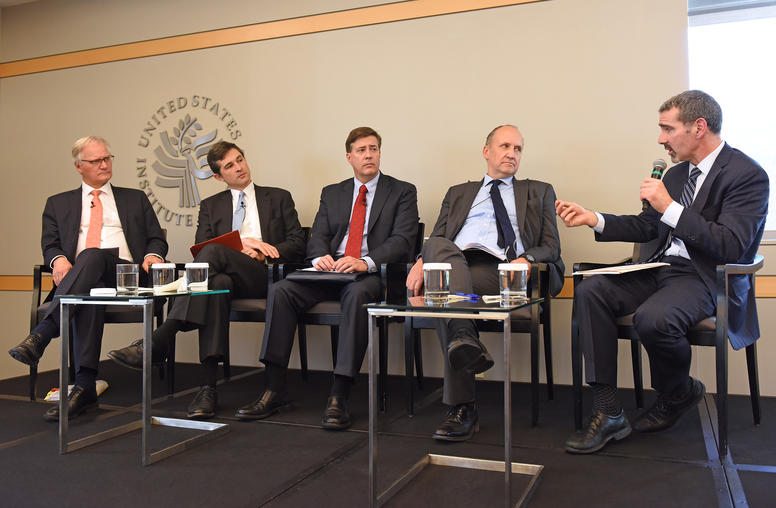
The European Union recently has added a new priority to its foreign and defense policies: Help countries vulnerable to crisis build their resilience against catastrophic events, notably violent conflict, which has uprooted 65 million people worldwide. On November 30, USIP gathered U.S., European and World Bank officials to discuss how governments and international organizations can better coordinate the implementation of this broad new approach to halting violent conflicts.
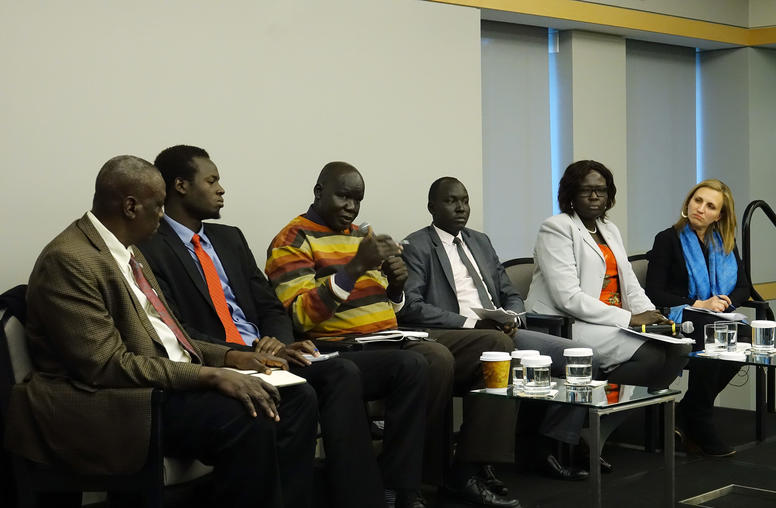
On November 8, USIP and the U.S. Holocaust Memorial Museum’s Simon-Skjodt Center for the Prevention of Genocide held a discussion with representatives of South Sudan’s civil society.
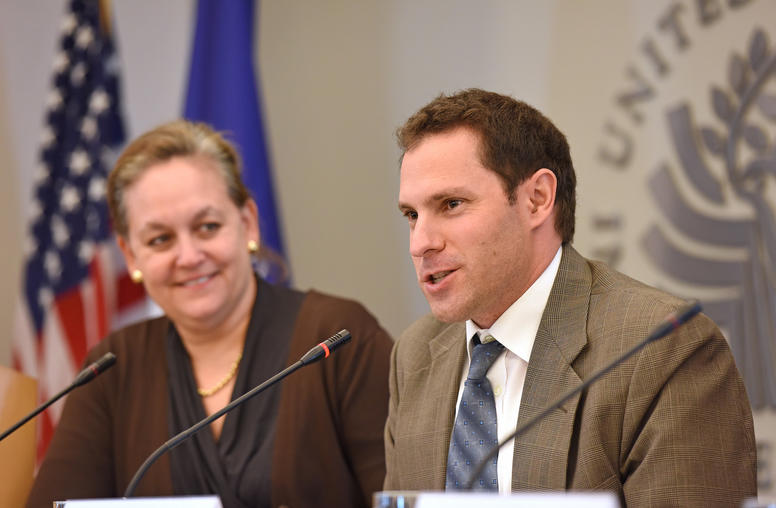
New research highlights how communities use cohesion and social structures to non-violently influence armed groups—a capacity that governments and institutions often fail to recognize. On October 2, USIP convened a discussion on such community self-protection, and how policymaking might better support it in conflict zones such as in Syria or Afghanistan.
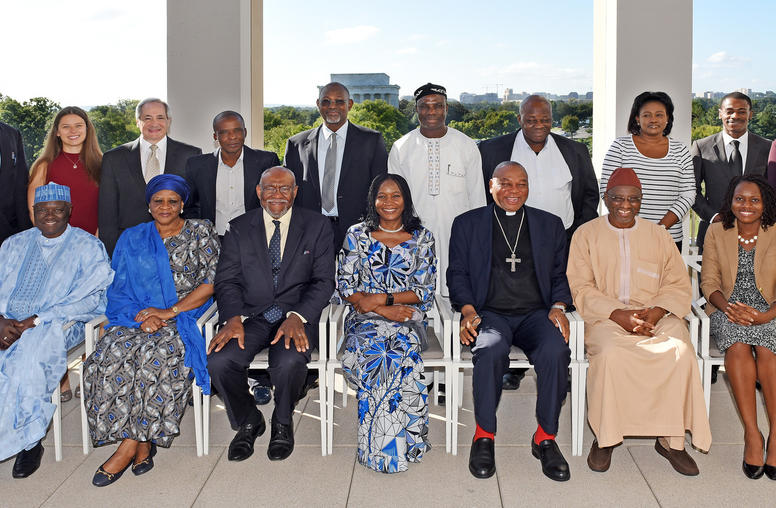
On September 28, USIP hosted a rare gathering of eminent Nigerian civic leaders and U.S. policymakers to examine what concrete steps Nigeria and the United States can take to stabilize Africa’s demographic and economic giant.